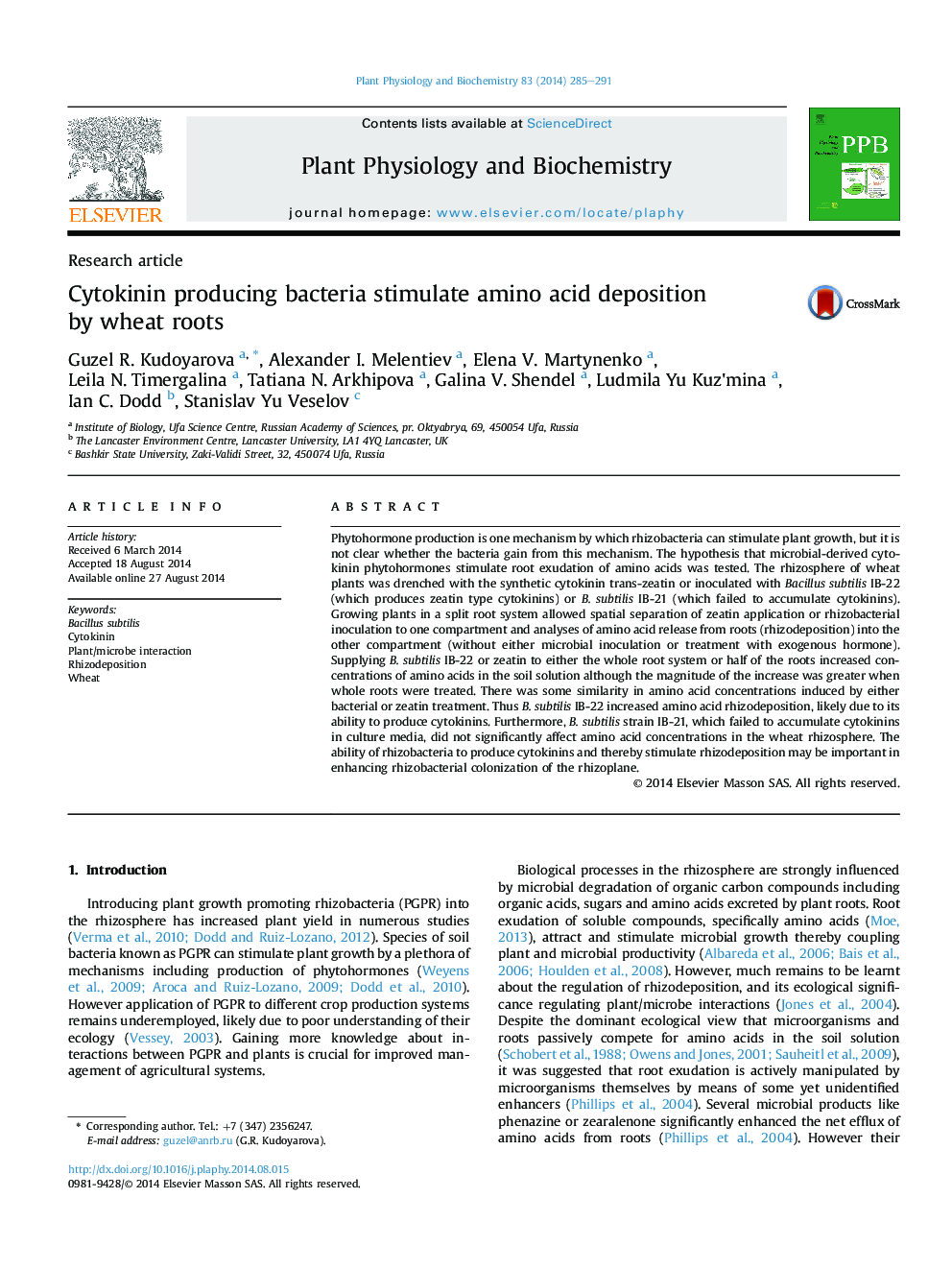| کد مقاله | کد نشریه | سال انتشار | مقاله انگلیسی | نسخه تمام متن |
|---|---|---|---|---|
| 2015782 | 1541938 | 2014 | 7 صفحه PDF | دانلود رایگان |
• Effect of CK producing bacteria on wheat was compared to that of synthetic CK.
• Inoculating half of roots with CK producing bacteria increased exudation of other half.
• The effect of inoculation mimicked that of synthetic cytokinin.
• Bacterial strain, which failed to accumulate CK, did not affect rhizodeposition.
• The ability of rhizobacteria to produce CK is important colonization.
Phytohormone production is one mechanism by which rhizobacteria can stimulate plant growth, but it is not clear whether the bacteria gain from this mechanism. The hypothesis that microbial-derived cytokinin phytohormones stimulate root exudation of amino acids was tested. The rhizosphere of wheat plants was drenched with the synthetic cytokinin trans-zeatin or inoculated with Bacillus subtilis IB-22 (which produces zeatin type cytokinins) or B. subtilis IB-21 (which failed to accumulate cytokinins). Growing plants in a split root system allowed spatial separation of zeatin application or rhizobacterial inoculation to one compartment and analyses of amino acid release from roots (rhizodeposition) into the other compartment (without either microbial inoculation or treatment with exogenous hormone). Supplying B. subtilis IB-22 or zeatin to either the whole root system or half of the roots increased concentrations of amino acids in the soil solution although the magnitude of the increase was greater when whole roots were treated. There was some similarity in amino acid concentrations induced by either bacterial or zeatin treatment. Thus B. subtilis IB-22 increased amino acid rhizodeposition, likely due to its ability to produce cytokinins. Furthermore, B. subtilis strain IB-21, which failed to accumulate cytokinins in culture media, did not significantly affect amino acid concentrations in the wheat rhizosphere. The ability of rhizobacteria to produce cytokinins and thereby stimulate rhizodeposition may be important in enhancing rhizobacterial colonization of the rhizoplane.
Journal: Plant Physiology and Biochemistry - Volume 83, October 2014, Pages 285–291
